Management Systems
Technical Standards & Certifications We Deal With
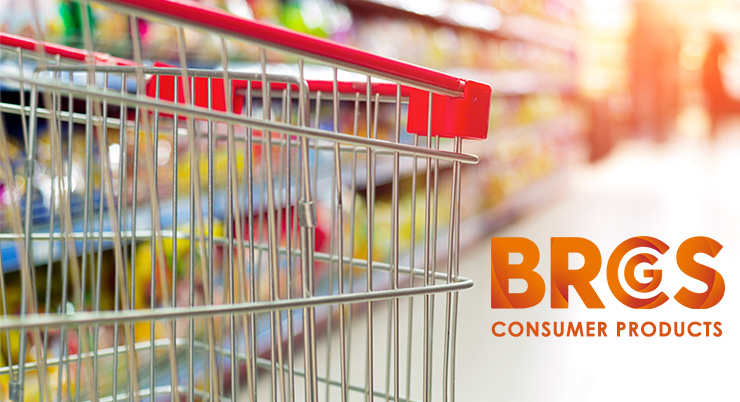
BRITISH RETAIL CONSORTIUM GLOBAL STANDARD FOR CONSUMER PRODUCTS
BRCGS stands for Brand Reputation Compliance Global Standards and was formerly known as BRC (British Retail Consortium). BRC Global Standard for Consumer Safety deliver confidence across the entire Supply Chain by guaranteeing the Standardization of Quality, Safety, Legality and Operational Principles. BRC Global Standard for Consumer Products covers two Distinct Areas: (1). General Merchandise, and (2) Personal Care & Household.
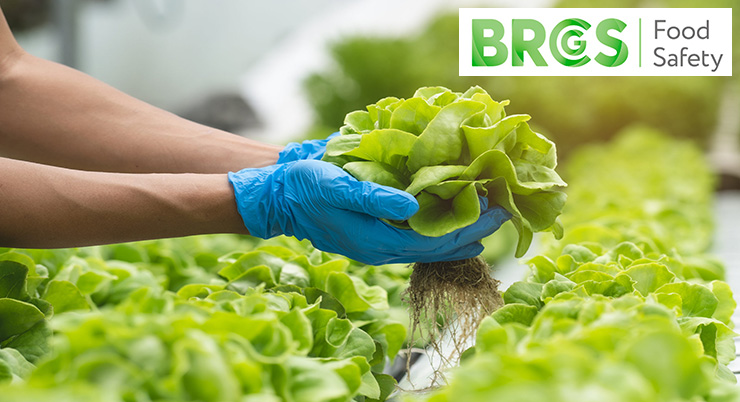
BRITISH RETAIL CONSORTIUM GLOBAL STANDARD FOR FOOD SAFETY
The British Retail Consortium Global Standard for Food Safety is developed by Food Industry Experts from Retailers, Manufacturers & Food Service Organizations providing a framework to manage Product Safety, Integrity, Legality, Quality, and the Operational Controls for these Criteria in the Food and Food Ingredient Manufacturing, Processing and Packing Industry. It was the first standard to be GFSI benchmarked, as well as introduce food safety culture.

BRITISH RETAIL CONSORTIUM GLOBAL STANDARD FOR PACKAGING MATERIALS
The Standard provides a Robust Framework for all types of Packaging Manufacturer to assist them in the Production of Safe Packaging Materials and to manage Product Quality to meet Customers’ Requirements. The Standard has been developed to specify the Product Safety, Quality & Operational Criteria that must be in place within a Packaging Manufacturing Organization in order for it to fulfil its Obligations with regard to Legal Compliance & Protection of the Consumer.
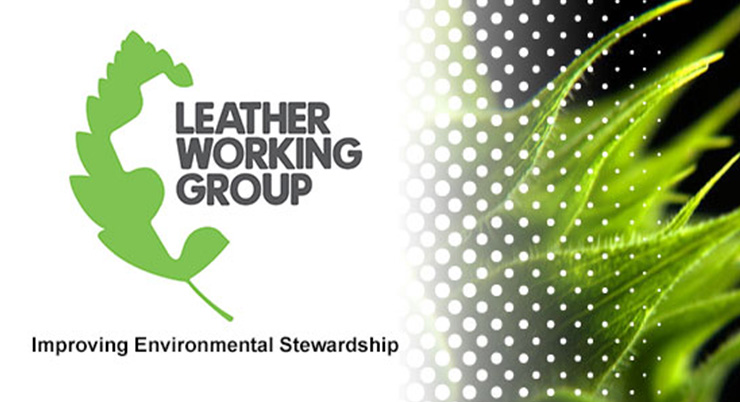
LEATHER WORKING GROUP TANNERIES AUDIT PROTOCOL
Leather Working Group is a Not-For-Profit Membership Organization and responsible for the World's Premiere Leather Manufacturing Certification. The LWG Environmental Auditing Protocol for Tanneries has been developed and reviewed by Leather Producers, Brands and Industry Experts to ensure Adequacy and Technical Feasibility. LWG aims to improve the Environmental Impact of the Leather Industry by Assessing and Certifying Leather Manufacturers against the Latest Issue 7 of the LWG Environmental Auditing Protocol.

LEATHER WORKING GROUP TRADERS AUDIT PROTOCOL
The Trader's Protocol provides a Supplementary System that is compatible with the latest LWG Tannery Auditing Protocol. The Objective of this Protocol is to provide a System of Accreditation primarily for Traders of Part-Processed & Finished Leather & Splits. The Traders Audit Requirements are designed to assess the LWG Status of Incoming Material and then allow the LWG Status to be passed through the Trader’s System and on to the Purchaser. The Trader will be Awarded a Score based on the Proportions of Input Material from Supplying Tanners.
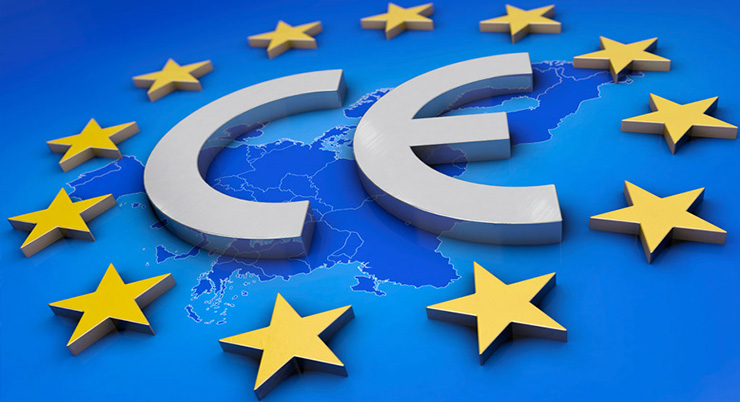
THE CONFORMITÈ EUROPËENNE MARKING
CE Marking where the letters "CE" are the Abbreviation of French Phrase "Conformité Européene" which means "European Conformity". CE Marking is an Administrative Marking on a Product confirming the Manufacturer's Declaration that the Product complies with the essential requirements of the relevant European Health, Safety and Environmental Protection Legislation. CE Marking on a Product ensures the Free Movement of the Product within the EFTA & EU. It is a Criminal Offence to affix a CE Mark to a Product that is not Compliant.

GSV SUPPLY CHAIN SECURITY CERTIFICATION AUDIT
The Global Security Verification (GSV) Standard is a Program developed by Intertek to help International Merchants as well as Distributors establish and improve their Global Security-Verification Process. The aim is to provide Safety Assurance, Risk Control, Efficiency, and Cost Savings for all Participants. The GSV Program integrates multiple Global Supply Chain Security Initiatives, including C-TPAT, Canadian Partners in Protection (PIP) and AEO Programme. More than 14,000 Suppliers globally are currently participating in the GSV Program.

CUSTOMS TRADE PARTNERSHIP AGAINST TERRORISM
Customs Trade Partnership Against Terrorism (CTPAT) is a Programme in U.S. Customs & Border Protection’s (CBP) Multi-Layered Cargo Enforcement Strategy. C-TPAT is a Joint Government-Business Initiative to build Cooperative Relationships that strengthen overall Supply Chain and Border Security. CTPAT recognizes that CBP can provide the Highest Level of Cargo Security only through close Cooperation with the Principle Stakeholders of the International Supply Chain such as Importers, Carriers, Manufacturers etc.
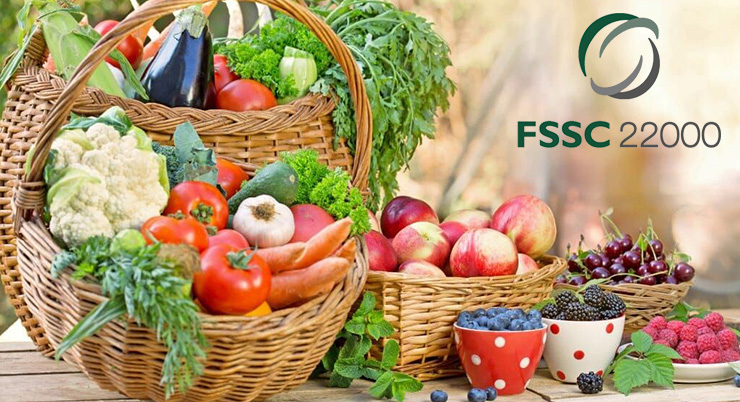
FOUNDATION FOOD SAFETY SYSTEM CERTIFICATION
The Foundation Food Safety System Certification 22000 (FSSC 22000) offers a complete Certification Scheme for the Auditing and Certification of Food Safety Management Systems (FSMS). FSSC 22000 is an Internationally Accepted Certification Scheme based on a combination of ISO 22000 Sector Specific PRP (Prerequisite Programs) and FSSC Additional Requirements. The Scheme provides a Certification Model that can be used in the whole Food Supply Chain. It also offers certification for combined FSMS and Quality Management Systems.

GOOD MANUFACTURING PRACTICES
GMP refers to the Good Manufacturing Practice Regulations promulgated by the US Food & Drug Administration under the authority of the Federal Food, Drug, & Cosmetic Act. These Regulations, require that Manufacturers, Processors & Packagers of Drugs, Medical Devices, some Food, and Blood take proactive steps to ensure that their Products are Safe, Pure, and Effective. GMP regulations require a Quality Approach to Manufacturing, enabling companies to minimize or eliminate instances of Contamination, Mixups, & Errors.
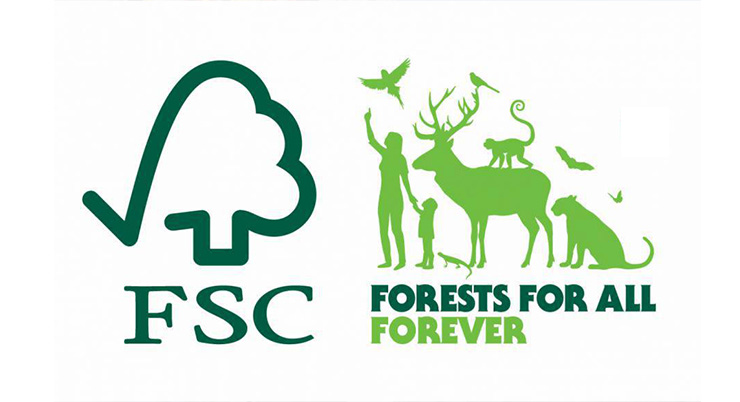
FOREST STEWARDSHIP COUNCIL CHAIN OF CUSTODY
The Forest Stewardship Council is a Non-Profit Organization that set Standards for Forestry Practices with the aim of promoting Environmentally Responsible and Socially Beneficial Forestry. FSC Certification provides credible confirmation for Products with Environmentally and Socially Responsible Sources to access the Market. FSC Certification traces the path of products from forests through the supply chain, verifying that FSC-Certified Material is identified or kept separated from Non-Certified Material throughout the Supply Chain.
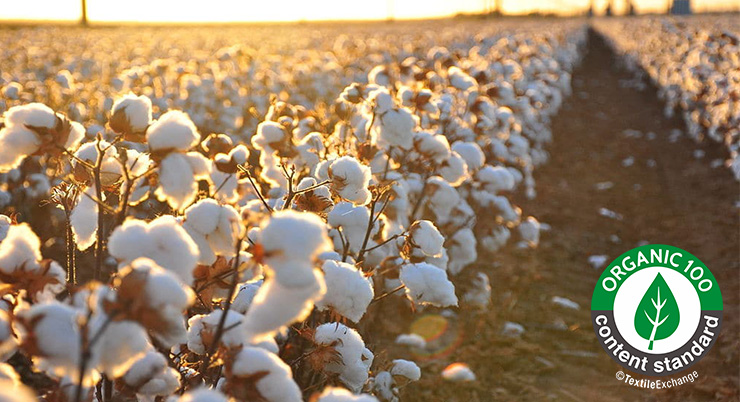
ORGANIC CONTENT STANDARD
The Organic Content Standard (OCS) is an international, voluntary standard developed by Textile Exchange that sets requirements for Third-Party Certification of Certified Organic Input and Chain of Custody. The Goal of the OCS is to increase Organic Agriculture Production. The Organic Content Standard applies to any Non-Food Product containing 95-100 Percent Organic Material. It verifies the presence & amount of Organic Material in a Final Product and Tracks the Flow of the Raw Material from its Source to the Final Product.
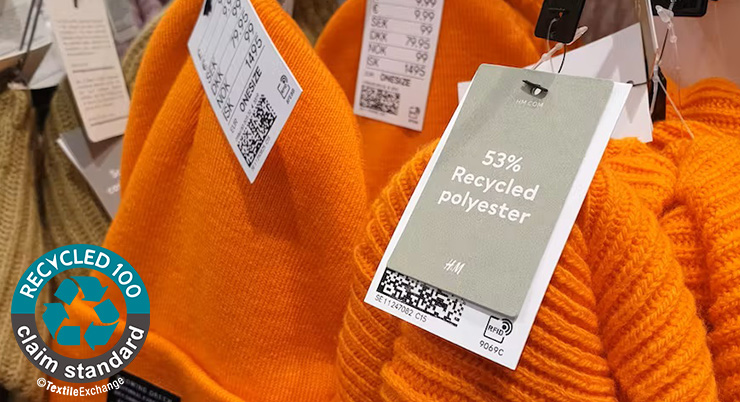
RECYCLED CLAIM STANDARD
Recycled Claim Standard recognizes Products made either in whole or part from Recycled Waste Material in place of Virgin Raw Materials. Recycled Content Program supports Suppliers and Manufacturers validate and communicate the Pre-Consumer or Post-Consumer Recycled Content in their Material, Product, or Package in accordance with Global Labelling Standards. RCS demonstrates your commitment to Conserving Natural Resources, helps you meet Customer Specifications and supports your Sustainability Goals.
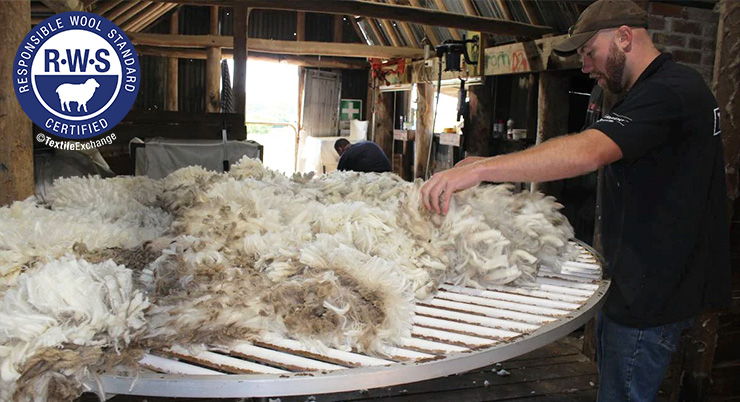
RESPONSIBLE WOOL STANDARD
The Responsible Wool Standard is a voluntary standard that addresses the welfare of sheep and the land they graze on. RWS also helps sheep farmers meet consumer, retailer, and brand demands. The Standard certifies they meet rigorous Animal Welfare and Land Management Requirements. The labelling by an independent certification body validates the conformity of your practices according to RWS. The RWS label guarantees better Land Management Practices, Sheep Welfare Respect and Transparent Communication.

GREEN TO WEAR STANDARD
Green to Wear defines the environmental behavior and minimum requirements that Inditex manufacturers and suppliers must comply with, especially when they relate to Wet Processing (Dry Cleaners, Tanneries, Artificial Leather Factories, Printing and Washing and Finishing Installations). GTW has been designed to evaluate the environmental performance of Wet Processing Units and help them to reduce their environmental impacts. Each mill is given a questionnaire and are assigned their grade based on the Audit Result.

SUPPLIER COMPLIANCE AUDIT NETWORK
The Supplier Compliance Audit Network is an Industry Trade Association that provides a systematic approach whereby mutually acceptable global compliance standards are achieved in reducing audit and operational redundancy for Supply Chain Stakeholders. Both US Customs and the C-TPAT Organization have been introduced to SCAN and have acknowledged the potential benefits of the Program. The SCAN Audit has been developed on the C-TPAT Requirements to ensure Security Compliance set out by U.S. Customs.
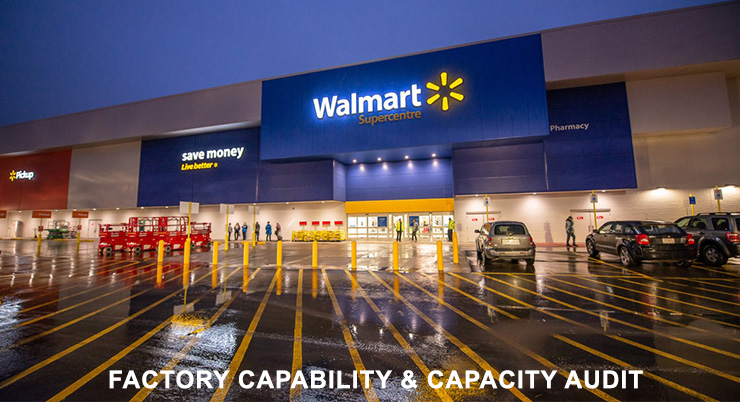
FACTORY CAPABILITY & CAPACITY AUDIT
The FCCA is the abbreviated form of Factory Capability & Capacity Assessment, which means Factory Output and Capacity Assessment. It is basically Wal-Mart's own Code of Conduct Audit. Its purpose is to check whether the Factory's Output & Production Capacity meet Wal-Mart's Production Capacity and Quality Requirements. This Program is not focused on auditing an individual Product Category, but on specifically assessing all Suppliers & their Manufacturing Facilities, to confirm they comply with Wal-Mart Standards.
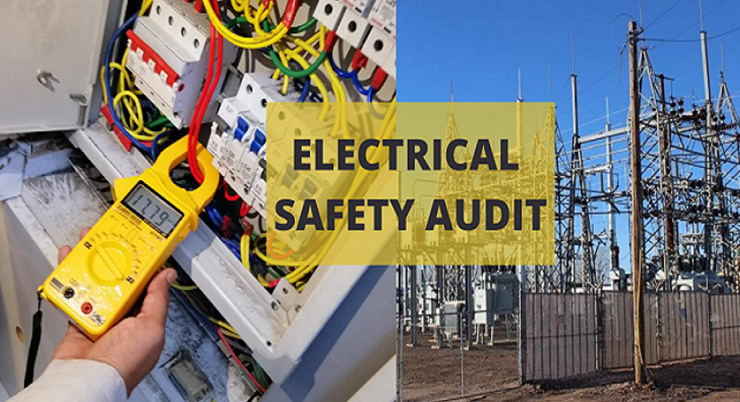
OCCUPATIONAL ELECTRICAL SAFETY THIRD-PARTY AUDIT
Electrical & Building Safety Audit indicates the Organization's adherence to Safe Electrical Installation, Use of Standard Operating Procedures of Electrical Intensive Equipment and following Electrical Safety Standards. Electrical Safety Audit is performed by Enquiry, Inspection, Testing and Verification. Electrical Safety Audit reviews the degree of safety of the electrical system within the premises, providing recommendation and measures to be taken to reduce or eliminate the danger of electrical Risks and Hazards.

TELECOM QUALITY MANAGEMENT SYSTEM
TL 9000 is an International Standard that establishes the requirements for a Quality Management System for the Design, Development, Manufacture, Supply, Installation and Maintenance of Telecommunications Products and Services. TL 9000 includes specific requirements to meet the needs of the Information and Communications Technology (ICT) Industry. TL 9000 Quality Management System for Telecommunications was designed in 1998 by the QuEST Forum, a group of Service Providers and Suppliers dedicated to the Telecom Industry.

CAPABILITY MATURITY MODEL INTEGRATION
Capability Maturity Model Integration (CMMI) is a Process Level Improvement Training & Appraisal Program and is administered by the CMMI Institute, a Subsidiary of ISACA. CMMi facilitates Software & Systems Engineering Companies to study, define, implement, improve and appraise their Internal Processes resulting in Improvement of the Development Cycle Time, Timely Deliveries to Customers, Reduction in Schedule, Effort & Cost Variances, Reduced Defect Levels, Reduced Rework, Improved Productivity & Profitability.

LEAN SIX SIGMA CERTIFICATION
Six Sigma is a Set of Techniques for Process Improvement. It was introduced by American engineer Bill Smith in 1986. Six Sigma is Statistical Based Quality Metric to assess, analyze and improve an organization’s Processes and Products. This increase in performance and decrease in process variation helps lead to defect reduction and improvement in profits, employee morale and quality of products or services. Six Sigma strategies seek to improve the Quality of the Process Output by removing the Causes of Defects.
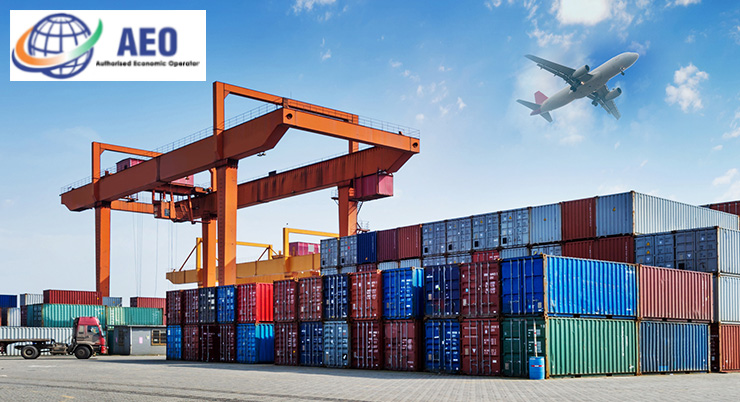
AUTHORIZED ECONOMIC OPERATOR PROGRAMME
Authorised Economic Operator (AEO) is a Programme under the aegis of the World Customs Organization (WCO) SAFE Framework of Standards to secure & facilitate global trade. The Programme aims to enhance International Supply Chain Security and facilitate Movement of Legitimate Goods. Under this Programme, an entity engaged in international trade is approved by Customs as Compliant with Supply Chain Security Standards and granted AEO Status with Certain Benefits. AEO is a voluntary compliance programme.
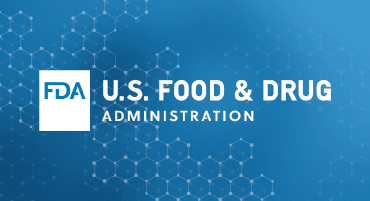
UNITED STATES FOOD AND DRUG ADMINISTRATION
The United States Food and Drug Administration (FDA or USFDA) is a Federal Agency of the Department of Health and Human Services. The FDA is responsible for Protecting and Promoting Public Health through the Control and Supervision of Food Safety, Tobacco Products, Dietary Supplements, Prescription & Over-The-Counter Pharmaceutical Drugs (Medications), Vaccines, Biopharmaceuticals, Blood Transfusions, Medical Devices, Electromagnetic Radiation Emitting Devices (ERED), Cosmetics, Animal Foods & Feed and Veterinary Products.
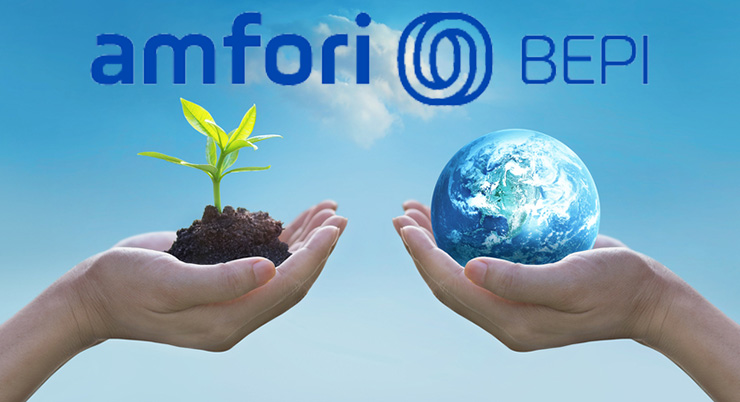
BUSINESS ENVIRONMENTAL PERFORMANCE INITIATIVE
BEPI is a voluntary environmental initiative by the Foreign Trade Association (FTA), which focuses on trade policy and global supply chain compliance to an existing social compliance BSCI program. The FTA has more than 1,000 members including retailers, importers and brands committed to improving supply chain corporate social responsibility performance. With the launch of BEPI at producer level, industry stakeholders are working together towards the common goal of achieving cleaner production with operational excellence.
@2021 Quantum Systems Management Private Limited ©

